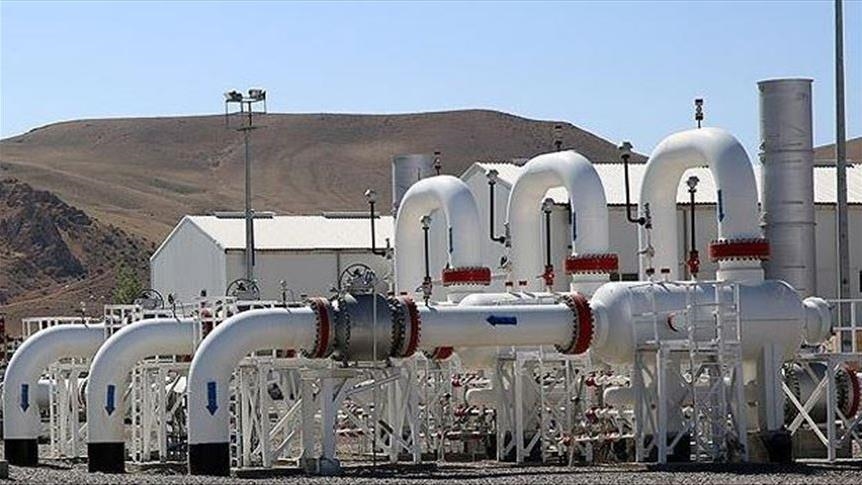 FILE PHOTO
FILE PHOTO
LONDON
India’s crude oil imports from Russia hit a new record of over 2.15 million barrels per day in May, a staggering 1,500% rise from March 2022 levels, according to data compiled by Anadolu.
Figures from commodity data firm Kpler show India’s Russian crude oil imports stood at 67,000 barrels per day in January 2022, a month before the war began.
The numbers started rising in March, reaching 136,000 barrels a day that month, and climbing above 1.12 million barrels per day by June.
By the time an EU embargo and a G-7 price cap on Russian crude took effect on Dec. 5, India was buying 1.2 million barrels daily.
The figure hit a new all-time high of 2.15 million barrels a day this May, making India the largest buyer of Russian crude oil.
Russia has also become India’s largest crude oil supplier, accounting for about 45% of its total imports.
While India’s Russian crude imports have soared 1,500% since March 2022, they have also grown 79% since the EU embargo kicked in.
Overall, as Western buyers backed off, Russia has shifted over 90% its crude oil exports to India and China after the war.
Ban or buy?
Cheap Russian crude gave India a competitive edge and the chance to ramp up supply of refined oil products to Europe, raising questions about whether the EU is circumventing the sanctions on Russian oil.
In March, EU foreign policy chief Josep Borrell said: “If diesel or gasoline is entering Europe, coming from India and being produced with Russian oil, that is certainly a circumvention of sanctions, and member states have to take measures.”
India authorities, however, rejected the idea, saying that Indian diesel sold to Europe could not be treated as a “Russian product.”
“India is buying crude oil from Russia and then refines it in its refineries. Since oil is being transformed into oil products, the outcoming diesel is an Indian product with a certificate of origin stipulating ‘India’ as the origin. This diesel is subsequently exported to Europe,” Viktor Katona, lead crude analyst at Kpler, told Anadolu.
That does not mean Europe is still importing Russian crude because, technically, diesel is a different product and it is produced in India, he said.
“As for potentially sanctioning these flows, the problem is that it is very difficult to ban specifically diesel that comes from Russian oil, while it makes up 40% to 45% of Indian oil imports,” said Katona.
“By the time it is refined, it gets commingled with other grades from Saudi Arabia, Iraq, and other countries. So, it is either no ban at all or banning any diesel delivery from India, because within a refinery it’s impossible to separate crude sources.”
Europe’s import rush
Data shows India has started to export oil products to some European countries that were buying almost nothing from it before the Ukraine war or the sanctions.
The Netherlands has emerged as one of the biggest buyers of Indian diesel, increasing its imports to 49,200 barrels a day this May, from 28,000 barrels a day in February 2022.
In January this year, it bought a record 76,000 barrels a day of oil products from India.
France has also steadily pushed up its imports from 12,000 barrels a day last December to 37,000 barrels a day this May.
Germany, which had bought almost no oil products from India in the three years before the war, imported 8,900 barrels per day in November 2022 and has ramped it up to over 10,000 barrels a day.
Italy, Romania, Belgium, and Spain are the other European countries that have increased imports of oil products from India in the last six months since the EU embargo on Russian oil came into force.
Anadolu Agency website contains only a portion of the news stories offered to subscribers in the AA News Broadcasting System (HAS), and in summarized form. Please contact us for subscription options.



